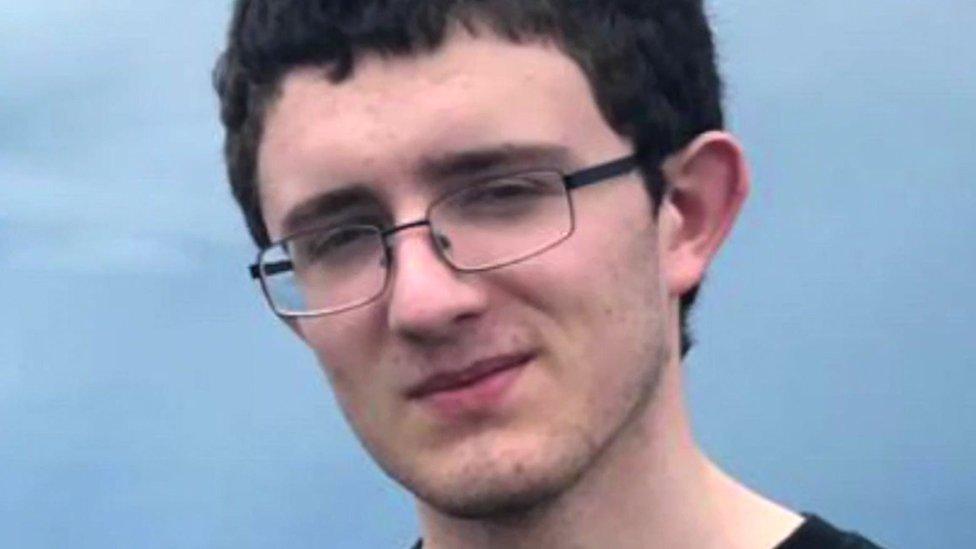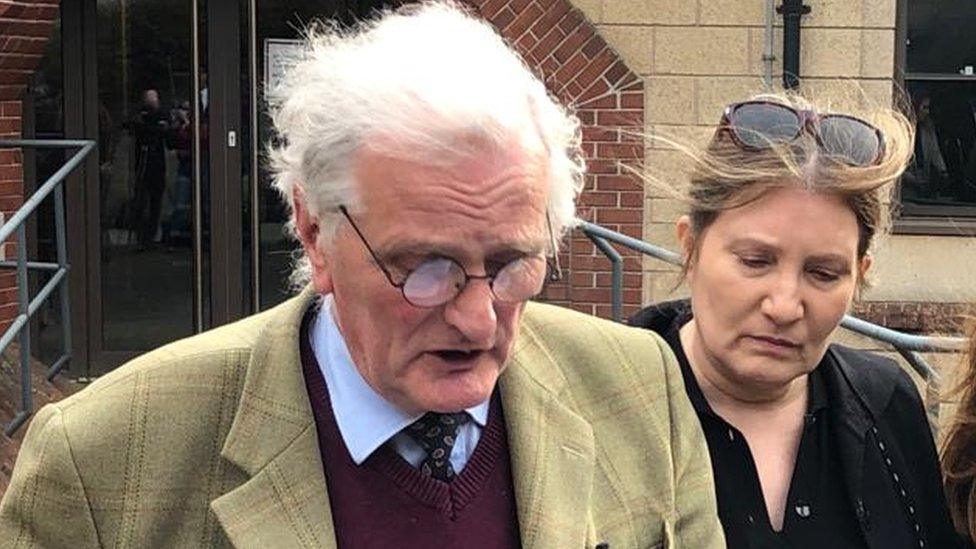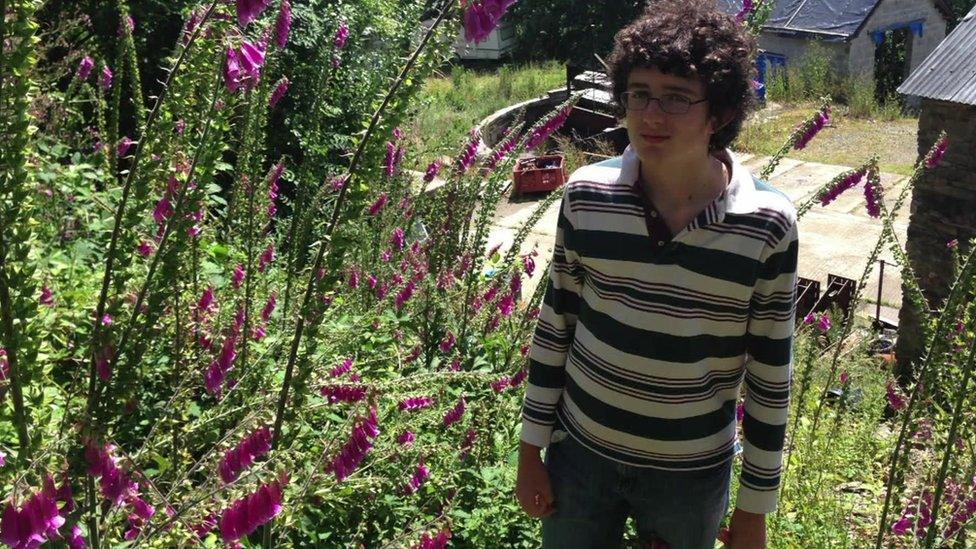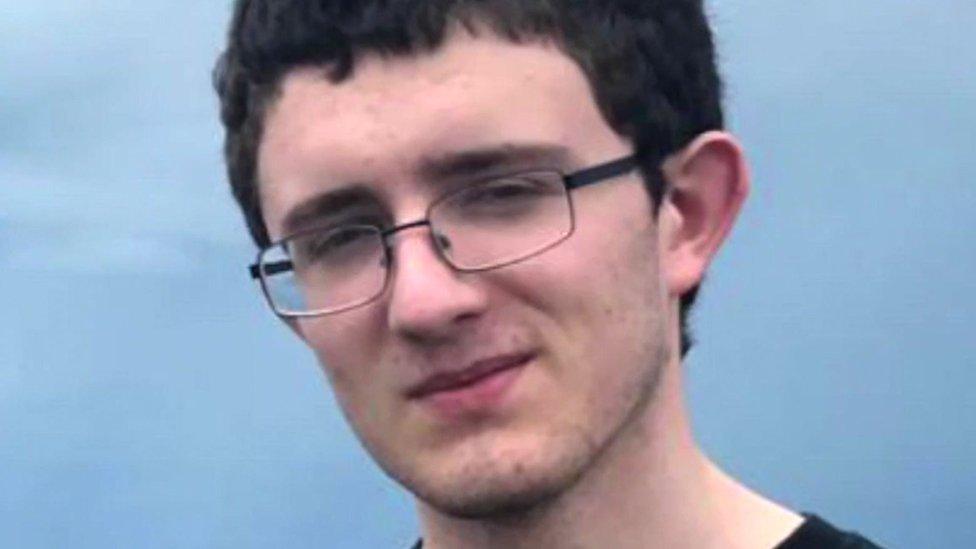University failed to support Harry Armstrong Evans, inquest told
- Published

Harry Armstrong Evans took his own life at his family home in Cornwall
A coroner has criticised a university over failing to respond to a student's "cry for help" weeks before he took his own life.
Harry Armstrong Evans, 21, died at his family home in Cornwall in June 2021 after suffering a mental health crisis at the University of Exeter.
Assistant Cornwall coroner Guy Davies recorded a conclusion of suicide.
The university said it would "consider the coroner's detailed conclusions".
Mr Davies said he would write a report to the university with areas of "concern" to prevent future deaths.
'Gentle soul'
Mr Davies said: "Harry's death was due to an acute mental health crisis which was preceded by a catalogue of missed opportunities along with system failures which together led to an absence of proactive results which meant Harry could not receive support."
Harry had been in the third year of an astrophysics degree when he took his own life at his family home in Launceston.
Rupert Armstrong Evans, Harry's father, said outside the hearing: "Harry was a beautiful, kind, intelligent and gentle soul. He never had a cross word with anyone."

Harry Armstrong Evans's father Rupert read out a statement after the inquest, alongside Harry's mother Alice
Mr Davies raised concern that when Harry had sent a "cry for help" in an email to the university that no-one contacted him by phone or in person - only by email.
Harry outlined his struggles, isolation during the Covid 19 pandemic "with no human contact" which had had "an adverse impact on my mental health", along with concerns about poor exam results and financial problems.

Harry Armstrong Evans died in June 2021
The coroner questioned whether the university's wellbeing team's case management system was "fit for purpose", after two phone call logs made by Harry's mother raising concerns about his welfare in May 2021 had been accidentally deleted.
The hearing in Truro was told the wellbeing team had since requested a new system and had been operating a "workaround" to avoid the mistake reoccurring.
Mr Davies said: "In Harry's case the safety net did not operate to safeguard Harry.
"Concerns were raised on a number of occasions by both Harry and his parents.
"My central finding will be that the welfare service did not proactively respond to those concerns and did not provide the necessary support for Harry.
"Specifically, there was no engagement with Harry's family."
He said he would be writing a preventing future deaths report to the university's vice-chancellor, which would highlight his concerns.
'Compassionate and supportive'
Mike Shore-Nye, registrar at the University of Exeter, said: "We will consider the coroner's detailed conclusions in this case and make sure we learn the lessons to enhance our support and operations further, specifically in the areas recommended by the coroner."
He said the university had "invested significantly in student welfare and wellbeing support in recent years".
This included setting up a "bespoke partnership with local NHS and support services for students with complex mental health needs, depression and anxiety, with student support services being available seven days a week, including throughout the Covid-19 pandemic".
He added: "On education, during the pandemic all students were supported with a no disadvantage guarantee to ensure their assessment marks didn't suffer as a result of the difficult circumstances surrounding the pandemic. And we continue to take a compassionate and supportive approach..."

Areas of concern raised by the coroner:
The provision of training for academic staff around suicide prevention
The wellbeing team's case management system and whether it is "fit for purpose"
The university's suicide prevention response - whether there is an "over-reliance" on email forms
The protocol and staff awareness of when they contact parents/family
Whether pastoral tutors should give their mobile numbers to students

Follow BBC News South West on Twitter, external, Facebook, external and Instagram, external. Send your story ideas to spotlight@bbc.co.uk, external
Related topics
- Published7 October 2022

- Published6 October 2022
